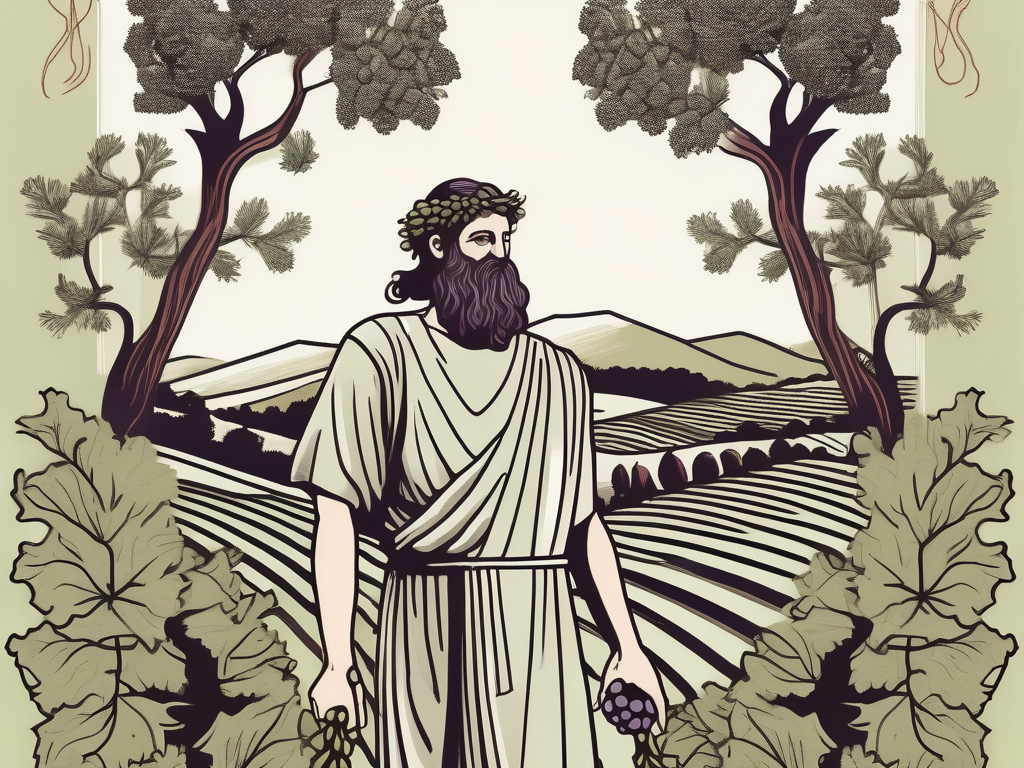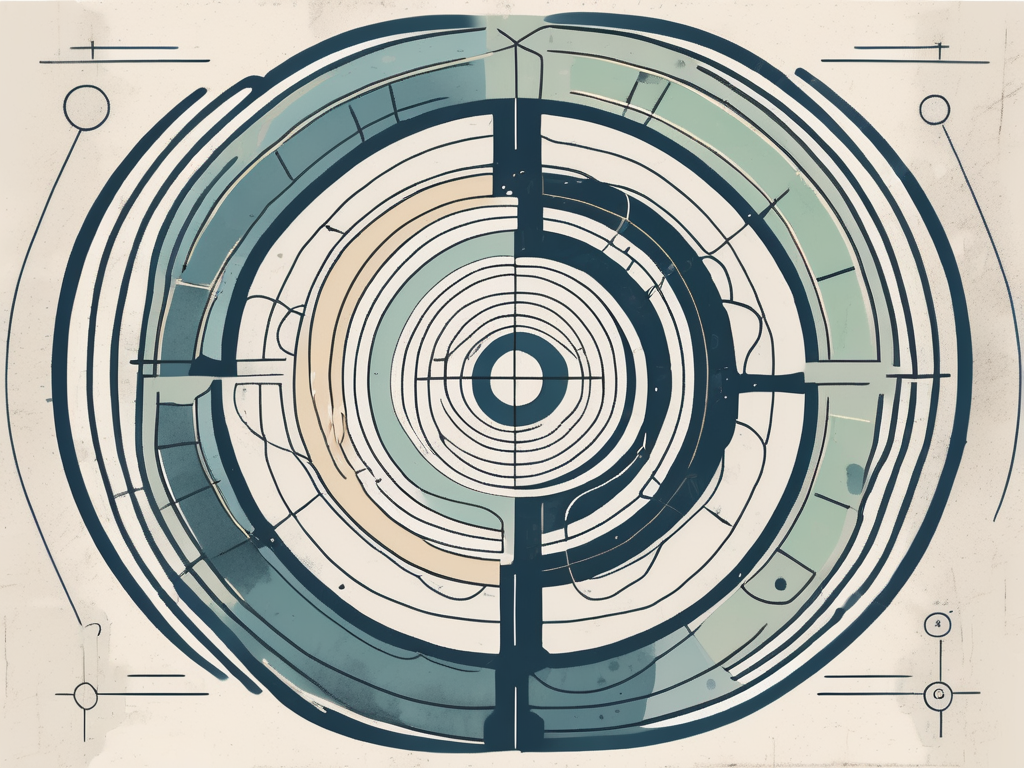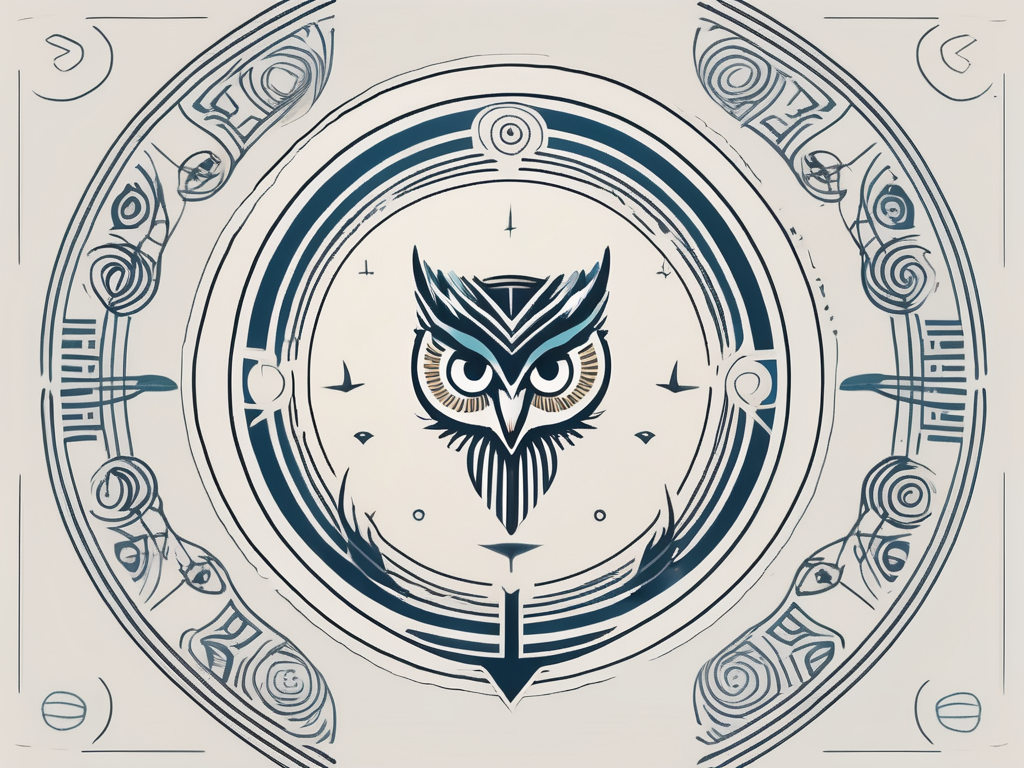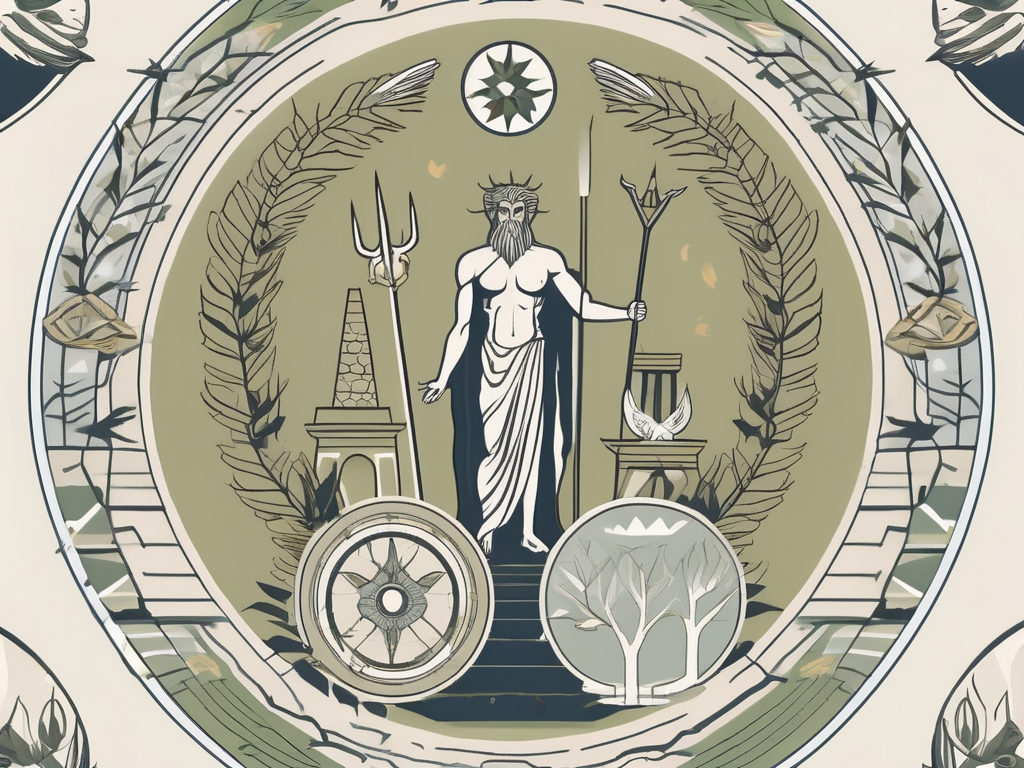Priapus, with his enigmatic legacy, holds a fascination within Greek mythology. This article delves deep into his mythology, symbolism, and the cult that surrounded him, as well as his lasting influence on modern culture and psychology.
Understanding the Mythology of Priapus
Let’s start by unraveling the intriguing mythology surrounding Priapus. Born to the union of Aphrodite and Dionysus, this god was known for his unusual appearance. Priapus was depicted with an oversized phallus, which became an iconic symbol associated with him.
But what more can we learn about this fascinating deity? Let’s delve deeper into the birth, parentage, and key stories of Priapus in Greek mythology.
The Birth and Parentage of Priapus
The birth of Priapus is an interesting tale. As the myth goes, Aphrodite was shocked when she lay eyes on her newborn son’s appearance. Disturbed by his misshapen body, she abandoned him on a mountain. However, Priapus was discovered by shepherds who were captivated by his divine radiance and raised him as their own.
Imagine the shepherds’ astonishment when they found this extraordinary child. They saw beyond his physical differences and recognized the divine essence within him. With their love and care, Priapus grew into a powerful and respected god.
Priapus in Greek Mythology: Key Stories and Legends
Many stories and legends surround Priapus in Greek mythology. One such tale involves him as the protector of gardens and vineyards, chasing away thieves and those who wished to harm the crops. It is believed that his presence brought fertility and abundance to the land.
Picture a lush garden, flourishing under the watchful eye of Priapus. His towering figure, with his iconic symbol of fertility, instilled a sense of awe and reverence in those who tended to the land. Farmers and gardeners sought his blessings, knowing that with his protection, their harvests would be bountiful.
Another legend tells of a failed attempt to seduce the goddess Hestia. Priapus foolishly approached her, driven by his desires, only to be met with her burning fire. This encounter resulted in his eternal humiliation and impotence. This story highlights the importance of the divine order and the consequences of disrespecting the gods.
Reflecting on this tale, we can see the consequences of Priapus’ actions and the reminder that even gods are not exempt from the consequences of their behavior. It serves as a cautionary tale to respect the boundaries set by the divine.
Priapus’ Role and Influence in the Pantheon
Despite his unusual appearance, Priapus held a significant role in the Greek pantheon. He was both revered and feared as a god of fertility, protection, and abundance. Farmers and gardeners sought his blessings to ensure successful harvests, while his frightening appearance served as a deterrent to potential wrongdoers.
Imagine the farmers, gathering in prayer and offering sacrifices to Priapus, seeking his favor for a prosperous season. They understood the importance of his role in ensuring the fertility of the land and the abundance of their crops.
Moreover, Priapus’ intimidating appearance struck fear into the hearts of those who contemplated stealing from the gardens and vineyards he protected. His presence alone was enough to ward off potential wrongdoers, preserving the prosperity of the land.
In conclusion, Priapus, with his unique attributes and intriguing mythology, stands as a reminder of the complexities and diversity within Greek mythology. From his birth and parentage to his key stories and role in the pantheon, Priapus continues to captivate our imagination and teach us valuable lessons about respect, boundaries, and the interconnectedness of fertility and abundance.
The Symbolism of Priapus in Ancient Greece
Priapus’ symbolism played a vital role in ancient Greek society. As a god of fertility and protection, he represented the power of life and the necessity of safeguarding it.
In ancient Greece, the concept of fertility was of utmost importance. It was believed that the fertility of the land directly correlated with the prosperity of the people. Priapus, with his association with fertility, became a central figure in ensuring the abundance of crops and the continuation of life itself.
As the god of protection, Priapus held a significant place in Greek society. His statues were commonly found in gardens and vineyards, acting as guardians against evil spirits and potential harm. The sight of Priapus, with his imposing and fearsome appearance, served as a deterrent to thieves and troublemakers, safeguarding the prosperity of the community.
Priapus as a Symbol of Fertility and Protection
The larger-than-life phallus associated with Priapus became a powerful symbol of fertility. It represented the vital force of creation and the ability to bring forth new life. Priapus was often depicted with an erect phallus, symbolizing his role in ensuring the fertility of the land and the success of crops.
Moreover, the fearsome appearance of Priapus acted as a protective symbol. Believed to ward off evil spirits and protect against harm, statues of Priapus were common in gardens and vineyards. His intimidating presence served as a deterrent, keeping potential thieves and troublemakers at bay.
Apart from his association with fertility and protection, Priapus also represented the celebration of life and the joy of procreation. His presence in ancient Greek society was a reminder of the importance of embracing the natural cycle of life, from birth to death and everything in between.
The Iconography of Priapus: Common Themes and Motifs
When examining the iconography of Priapus, certain themes and motifs emerge. Priapus was often depicted carrying a basket of fruit, symbolizing abundance and prosperity. Additionally, he frequently held a shepherd’s crook, representing his role as a guardian and protector of the land.
Interestingly, Priapus was frequently shown with an exaggeratedly long nose, adding a touch of whimsy and humor to his depictions. This elongated nose was believed to ward off evil and protect against the evil eye, reinforcing his image as a symbol of protection.
The combination of these symbols – the fruit basket, the shepherd’s crook, and the elongated nose – created a visual language that communicated the multifaceted nature of Priapus. He was not only a god of fertility and protection but also a figure of abundance, guardianship, and even humor.
Priapus in Literature and Art: Symbolic Interpretations
Throughout ancient Greek literature and art, Priapus appeared in various forms, each laden with symbolic meanings. In literature, he was often depicted as a mischievous and lighthearted deity, whose primary concerns were fertility and defending the natural order.
Visual representations of Priapus portrayed him in both humorous and solemn situations. Artists incorporated his phallic symbolism into sculptures and paintings, acknowledging his role as a powerful force of procreation and protection. These artistic interpretations served as a reminder of the interconnectedness of life, fertility, and the divine.
Furthermore, Priapus’ presence in literature and art also highlighted the importance of balance and harmony in the natural world. His role as a guardian and protector emphasized the need to maintain a harmonious relationship with the environment, ensuring the continued prosperity of the community.
In conclusion, Priapus’ symbolism in ancient Greece went beyond mere fertility and protection. It encompassed themes of abundance, guardianship, humor, and the celebration of life itself. The multifaceted nature of Priapus made him a significant figure in Greek society, reminding people of the interconnectedness of all aspects of life and the importance of safeguarding the natural order.
The Cult of Priapus: Worship and Rituals
The cult of Priapus had a significant presence in ancient Greece. Worshippers held rituals and festivals dedicated to him, seeking his blessings and protection.
The Cult of Priapus: Its Origins and Spread
The origin of the cult of Priapus traces back to the rural areas of ancient Greece, where his worship began among farmers and vintners. Over time, the cult spread, gaining popularity and attracting followers from various social classes.
Despite the occasional ridicule from more mainstream religious sects, the cult of Priapus thrived, especially in regions where agriculture and fertility were vital to the local economy.
Rituals and Festivals Dedicated to Priapus
Rituals dedicated to Priapus often involved dancing, music, and offerings of fruits and vegetables. Participants believed that by honoring and appeasing Priapus, they would receive his blessings in return.
One of the most famous festivals dedicated to Priapus was the Dionysia, a grand celebration of Dionysus, the god of wine and festivities. During this festival, followers of Priapus would gather, engaging in lively processions and raucous celebrations, honoring both Dionysus and Priapus.
Priapus’ Temples and Sacred Sites: An Overview
Priapus’ temples and sacred sites were scattered throughout ancient Greece, the most notable being the Sanctuary of Priapus located on the Hellespont. This sacred sanctuary housed an iconic statue of Priapus, drawing both pilgrims and curious visitors.
People from all walks of life would make pilgrimages to these holy sites, offering prayers and seeking blessings from the god of fertility. The temples and sanctuaries acted as focal points for communal worship, fostering a sense of unity among Priapus’ followers.
Priapus’ Legacy in Modern Culture and Psychology
Priapus’ legacy extends beyond ancient Greece, leaving traces in modern culture and psychology. Let’s explore his influence in these domains.
Priapus in Modern Literature and Art
The influence of Priapus can be traced in modern literature and art. Contemporary authors and artists often draw inspiration from Greek mythology, including the figure of Priapus. He is integrated into narratives and artistic expressions, continuing to captivate audiences with his enigmatic presence.
The Psychological Concept of Priapism: A Legacy of the God Priapus
In the field of psychology, the term “priapism” has emerged, referring to a persistent and painful erection unrelated to sexual stimulation. This medical condition derives its name from the god Priapus, connecting it to his association with fertility and virility.
Although the term priapism carries no direct connection to Priapus’ mythology, it hints at the enduring legacy and impact of this ancient god in shaping our understanding of human sexuality.
Priapus’ Influence on Modern Paganism and Neo-Pagan Movements
Priapus’ influence can also be seen in modern pagan and neo-pagan movements. Many contemporary pagans honor and include Priapus as a deity, celebrating his role as a symbol of fertility, protection, and the natural order.
By embracing Priapus’ mythology and spirituality, modern practitioners seek to establish a connection with the ancient roots of human spirituality and explore the enduring relevance of these ancient gods and their teachings.
In conclusion, the mythology and symbolism of Priapus continue to captivate and intrigue. From his unusual birth and role in Greek mythology to his symbolism as a god of fertility and protection, Priapus’ enigmatic legacy endures. The cult that worshipped him, the rituals dedicated to him, and his influence in modern culture and psychology all contribute to a deeper understanding of this captivating Greek god. Priapus invites us to explore the complexities of ancient mythology and to reflect on our own connection with fertility, protection, and the natural world.












